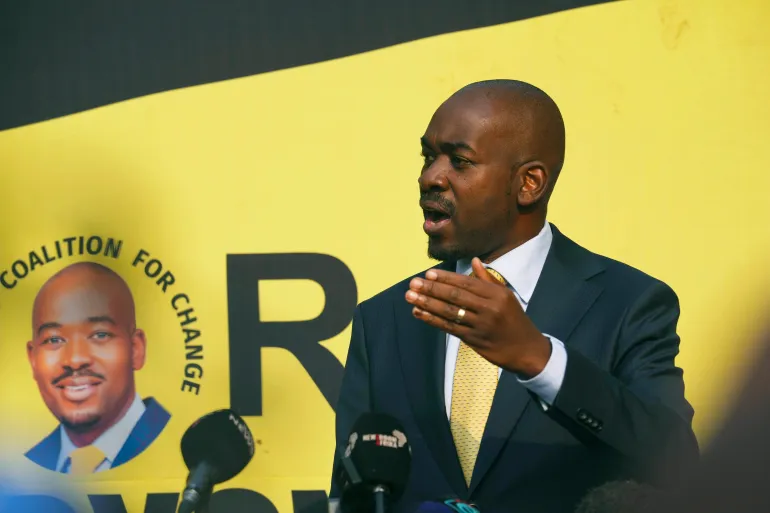The main opposition leader in Zimbabwe has alleged ‘blatant and gigantic fraud’ in the country’s election after President Emmerson Mnangagwa was declared the winner and international observers reported an environment of intimidation against voters.
Africa Today News, New York recalls that late on Saturday, the Zimbabwe Electoral Commission (ZEC) announced the 80-year-old Mnangagwa, won a second term with 52.6 percent of the ballots against 44 percent for his main challenger, Nelson Chamisa, 45, of the Citizens Coalition for Change (CCC) party.
The news was made two days earlier than anticipated and came after the voting period had to be extended due to problems with the printing of ballots.
Chamisa said the opposition had not ratified the results, which he said had been “hastily assembled without proper verification”.
‘They stole your voice and vote but never your hope,’ Chamisa wrote in a post on X, formerly known as Twitter, in his first public reaction to the election declaration. ‘It’s a blatant and gigantic fraud.’
Mnangagwa, 80, speaking from the presidential palace, dismissed the allegations and challenged his accusers to take action.
Read Also: Zimbabwe: Mnangagwa Wins 2nd Term, Opposition Rejects
“I did not conduct these elections. I think those who feel the race was not run properly know where to go to complain,” he said at a news conference on Sunday, expressing great happiness at his victory. He insisted the elections were run “transparently, fairly in broad daylight”.
Zimbabweans went to the polls on Wednesday and Thursday to choose a president and new parliament, in an election seen as a test of support for Mnangagwa’s ZANU-PF party, whose 43-year rule has been accompanied by an economic crisis and deepening authoritarianism.
The United Nations Secretary-General Antonio Guterres voiced concern on Sunday about ‘the arrest of observers, reports of voter intimidation, threats of violence, harassment and coercion’ in the country of 15 million people.
Guterres issued a statement urging all sides to “peacefully settle any disputes through established legal and institutional channels” and resolve disputes “in a fair, expeditious, and transparent manner to ensure that the results are a true reflection of the will of the people”.
In the buildup to the vote, international rights groups reported a crackdown on opposition to Mnangagwa and ZANU-PF, which has been in power since independence and the end of white minority rule in 1980.
